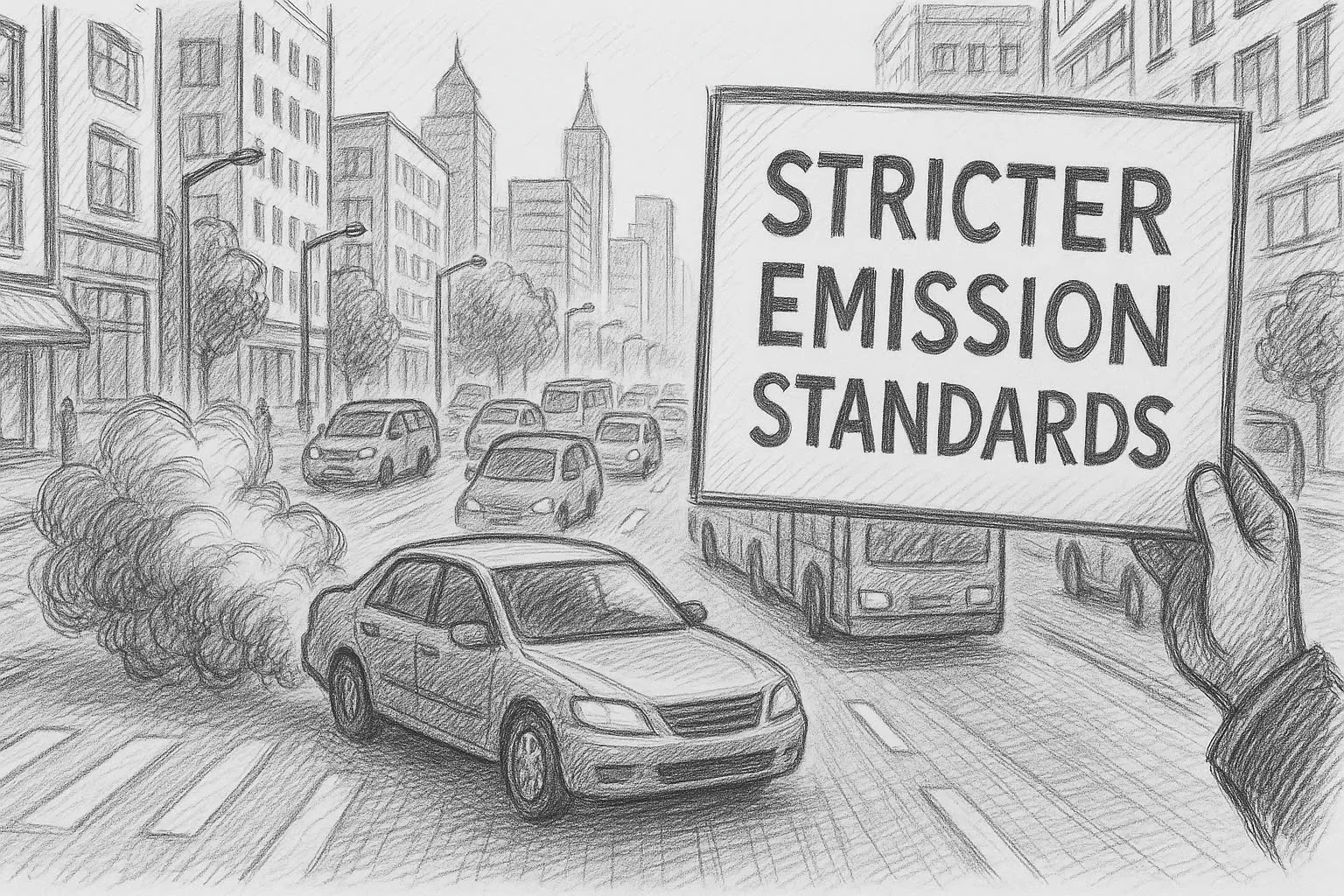Stricter vehicle emission standards are a must and a fair path
Welcome to Words on the Street, a special Hanoi Times column discussing critical developments in Vietnam. Today, we will explore the need for stricter vehicle emission regulations, bearing in mind that the voice of the people cannot be ignored. The public's interest should not be overlooked when developing a policy.
THE HANOI TIMES — As air pollution in Hanoi and Ho Chi Minh City keeps getting worse, tightening car emission standards in these two big cities is a much-needed move.

However, for this policy to be feasible and publicly accepted, it needs more than just the right objectives. It must also include a practical, well-designed implementation plan.
According to the draft decision currently under public consultation, starting in 2026-2027, vehicles manufactured from 2017 onward must meet level four or five emission standards, similar to Euro 4 or 5, if they are to circulate in Hanoi and Ho Chi Minh City. Cars manufactured before 1999 are required to meet the lowest emission standard, Euro 1.
This policy is designed to curb air pollution, which is already at alarming levels, especially due to emissions from outdated vehicles with inefficient combustion technologies.
There are now about six million registered automobiles in Vietnam, nearly half of which run in Hanoi and Ho Chi Minh City. According to data from the Vietnam Register in 2023 and the first half of 2024, about 1.17 million vehicles failed their initial inspection due to excessive emissions.
At the time, this figure accounted for nearly 22% of all vehicles inspected. Although this percentage dropped to just over 18% this year, the absolute number remains significant.
Tightening emission standards helps reduce air pollution, which causes respiratory and cardiovascular illnesses. It also drives the market toward cleaner vehicle technologies, such as hybrid and electric cars.
It is also widely regarded as a critical step for Vietnam to fulfill its international commitment to achieving net-zero carbon emissions by 2050.
Vietnam is working toward global environmental integration and sustainable development. Other countries in the region, such as Thailand, Malaysia, and Singapore, adopted Euro 4 and Euro 5 standards years ago.
However, the market in Vietnam is different. Owning a car in Vietnam is costly because of the many taxes. Both individuals and businesses are interested in buying used vehicles. This explains why used cars, some of which were manufactured as early as 20 years ago, are still available in the country.
In a country like Vietnam, the success of a policy depends not only on its goal, but also on how it is put into practice.
Many vehicle owners, experts, and transportation associations have voiced concerns that rapidly or rigidly enforcing stricter standards could have negative collateral consequences.
First, not all older vehicles emit excessive pollution. Using only the year of manufacture as a criterion could unnecessarily disqualify many well-maintained vehicles, resulting in waste.
Second, although electric cars and vehicles that meet higher emission standards are currently expensive, there are no significant support policies in place for individual drivers, small transport companies, or family-run businesses that would have to dispose of their transport means because of higher emission standards. Tens of thousands of people could lose their livelihoods if they are forced to give up their vehicles without alternatives.
Third, if strict standards are only enforced in Hanoi and Ho Chi Minh City while other provinces continue to follow older norms, fairness would be undermined. Vehicles from neighboring provinces can enter the two cities daily, creating a loophole that defeats the purpose of the policy.
Clear roadmap, socioeconomic impact assessment needed
According to several experts, the draft regulation still lacks a comprehensive socio-economic impact assessment. The number of affected vehicles, potential loss of income, and proposed support mechanisms remain largely unaddressed.
Any regulatory body drafting such a sweeping policy must evaluate the legal and socioeconomic implications using solid data, such as statistics on vehicle density, total vehicle count, vehicle types, and usage patterns.
Without accurate data to inform zoning, traffic planning, and urban air quality improvement efforts, such regulations could become arbitrary.
Past policy initiatives, such as congestion charges and motorbike bans, have demonstrated that even well-intentioned policies can falter without public support and robust evidence. For emission standards to work, they must be backed by a transparent and humane implementation plan.
One practical solution is to announce a clearly defined, multi-year rollout plan, giving citizens and businesses time to prepare.
Lawmakers should also design financial support mechanisms for those affected, such as subsidies for replacing vehicles, tax incentives for low-emission or clean-energy vehicles, and vehicle buyback or trade-in programs for older models.
Emissions should be evaluated based on actual performance through real-world emissions testing, not just the manufacturing date.
At the same time, the government must strengthen its oversight of the vehicle inspection system to ensure fairness and prevent fraud. Public outreach and communication are also essential to help citizens understand their options and make informed decisions.
Given the severe state of urban air pollution, the proposal to tighten car emission standards in Hanoi and Ho Chi Minh City is entirely appropriate. For this policy to succeed in a sustainable and humane way, however, it requires a clear roadmap, specific support systems, and the full engagement of all stakeholders.
A livable city is more than just clean cars. It's a place where policies are based on understanding and where people feel they're part of the solution, not just subjects of enforcement.












